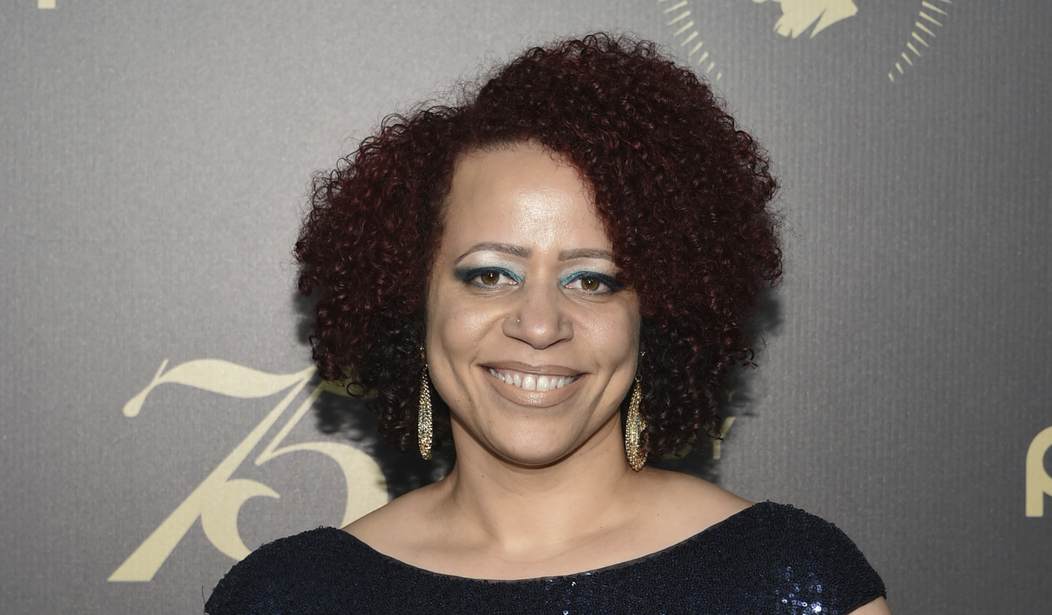Nikole Hannah-Jones, author of the infamous 1619 Project, said recently that she didn’t understand why parents believe they should have a say in what their children are learning in school. She simply doesn’t get it. While most Americans agree that our children must learn the whole story of America, they oppose indoctrination and are outraged that the 1619 Project and critical race theory is showing up in our schools.
Hannah-Jones and The New York Times crowd that launched the 1619 Project three years ago have stopped fighting about whether their work is history. After virtually every reputable historian in the country—on both the left and the right—called their work inaccurate and sloppy, they know they have lost that fight. Now they are fighting parents and conservatives.
These days Hannah-Jones and the Times carefully call 1619 a “journalism project” which apparently means it doesn’t have to be true.
Backing away from facts even further, Hannah-Jones has called the work an “an origin story.” She also says “…it is not about history, it’s about memory…”
Journalism, memory, whatever—1619 marches on. It is now a best-selling book and will soon become a movie. A children’s version has been released.
No one who has read 1619 is confused about what it is—another left-wing, America-hating screed designed to divide us on race and to indoctrinate our children.
The 1619 Project has always had a classroom component with teaching guides and lesson plans. It is being taught in thousands of classrooms across America now. The goal is for every school child in the country to be taught that America did not begin in 1776 with the Declaration of Independence, but instead was born in 1619 when the first Africans arrived in Virginia.
Recommended
It presents all of American history in black and white. “Our democracy’s founding ideals were false,” Hannah-Jones writes, “Black Americans have fought to make them true.”
Of course, Americans of every race and creed have fought—and continue to fight—so our country lives up to the ideals laid out by the founders.
1619 presents only two American stories—the black story and the white story. But American history is made up of millions of stories and we are learning more about those stories all the time.
If Hannah-Jones were a historian writing real history, she would understand that what we know about our past is dynamic. It changes when real historians discover new facts that put the past in clearer focus and sometimes reverses what we thought was historical fact.
When the British dug up Richard the Third in a parking lot in 2012, 500 years of English history had to be re-examined. Closer to home, when DNA finally confirmed in 1998 what Jefferson’s descendants had known and many people had believed for generations—that Thomas Jefferson had fathered Sally Hemmings’ children—it recast the way Americans, who may not have been paying much attention before, viewed our country’s founding and the leaders who forged the nation.
The Jefferson-Hemmings story was not a surprise. Long before The New York Times put out the 1619 project, Americans knew that Jefferson, Washington and other Founding Fathers, despite the great country they had built, were also slaveholders who had exploited the evil of the institution they were perpetrating. By the 1960s, American children were learning in school about slavery and the long road to freedom, from Reconstruction to Jim Crow to the struggles that continue today. Despite their insistence that 1619 advocates teaching history accurately, contemporary history classes discarded “whitewashed” views of the past and phony excuses for the Confederate rebellion decades ago.
Jefferson’s DNA test inadvertently ushered in a new way of looking at history that changed the way we see ourselves. His story was part of what moved millions of Americans to want to know more about who their own ancestors were. Inexpensive DNA tests have allowed millions of Americans to look more closely at their genetic ancestry resulting in a 276 percent jump in the number of people who reported identifying with more than one racial group in the 2020 Census. According to Pew Research, easy access to DNA tests have given Americans a much broader perspective on who they are and where they come from. Almost 20 percent report finding racial links they were not aware of. These findings are expanding what we know about America’s past.
Writing history requires collecting facts and painstakingly stitching them together to build something that gets us closer to the truth of times past. It is not memory or myth and it is certainly not a politically driven agenda pretending to be a “journalism project.”
Real history is the exact opposite of The New York Times 1619 Project and Americans have rejected it. When it comes to history, they want so much more.
Sherry Sylvester is a Distinguished Senior Fellow at the Texas Public Policy Foundation.

























Join the conversation as a VIP Member